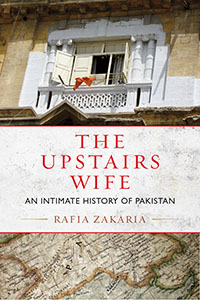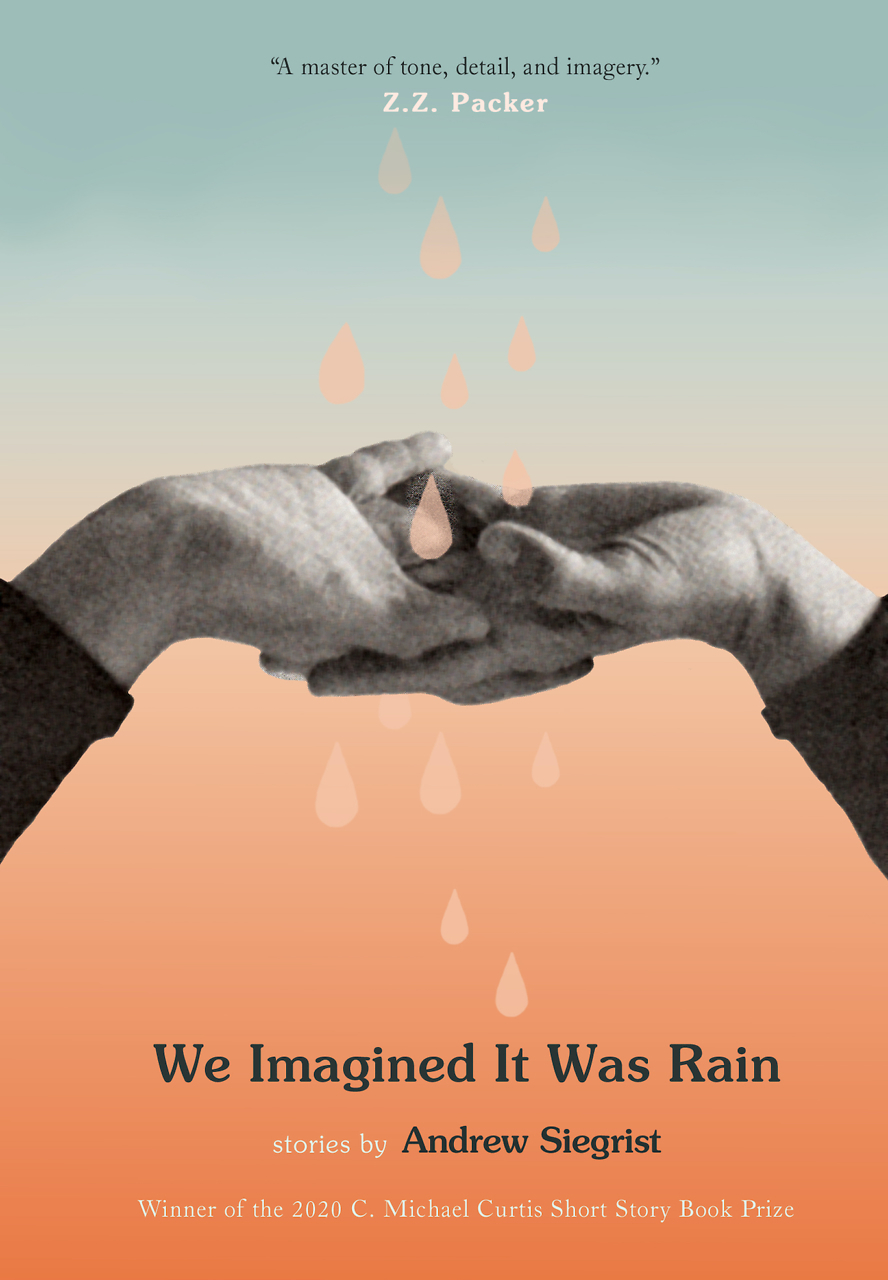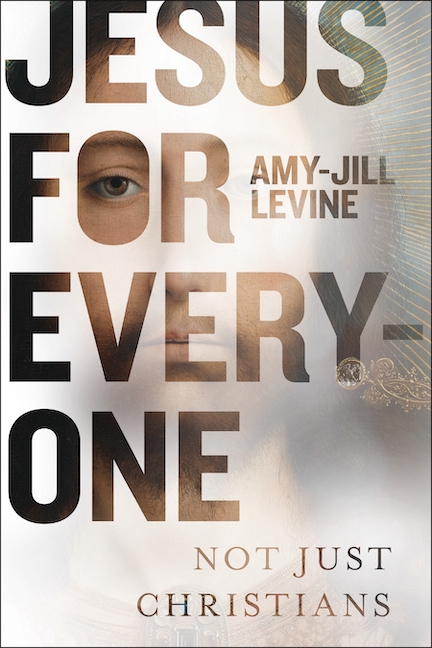Failed Love in a New Nation
Rafia Zakaria’s memoir, The Upstairs Wife, sets the story of a sad marriage against the torturous history of Pakistan
To many Americans, Pakistan is little more than a haven and a recruiting ground for terrorists. It’s the final hiding place of Osama bin Laden and the target of U.S. drone attacks, a place unaccountably and frighteningly Other. Rafia Zakaria’s memoir, The Upstairs Wife: An Intimate History of Pakistan, offers a remedy for that that blinkered view. By nestling the story of her aunt’s difficult marriage within a broadly-sketched account of Pakistan’s torturous past, she humanizes the country’s suffering and makes its complex political situation more understandable, if no less troubling.
 The Upstairs Wife opens in 2007, in a moment of simultaneous crises for Zakaria’s family and the nation of Pakistan. As the women of the family gather to pray for her Aunt Amina’s husband, who is critically ill, Zakaria receives the news that Benazir Bhutto, the former Prime Minister recently returned from exile, has been assassinated. Her Uncle Sohail survives, but his recovery is a mixed blessing, just as Bhutto’s death is an ambiguous tragedy. “The complexities of each defied singular emotion,” writes Zakaria. “I could not celebrate the continuation of my uncle’s life or mourn the cessation of Benazir’s.” Her narrative then jumps back in time and traces the linked histories of Pakistan and her unhappy aunt and uncle, examining how she came to this place of deep ambivalence.
The Upstairs Wife opens in 2007, in a moment of simultaneous crises for Zakaria’s family and the nation of Pakistan. As the women of the family gather to pray for her Aunt Amina’s husband, who is critically ill, Zakaria receives the news that Benazir Bhutto, the former Prime Minister recently returned from exile, has been assassinated. Her Uncle Sohail survives, but his recovery is a mixed blessing, just as Bhutto’s death is an ambiguous tragedy. “The complexities of each defied singular emotion,” writes Zakaria. “I could not celebrate the continuation of my uncle’s life or mourn the cessation of Benazir’s.” Her narrative then jumps back in time and traces the linked histories of Pakistan and her unhappy aunt and uncle, examining how she came to this place of deep ambivalence.
Zakaria’s grandparents, Said and Surrayya, moved to Karachi from Bombay in 1961, thus becoming Muhajirs, the term for the millions of Muslims who relocated after the 1947 Partition that separated India and Pakistan. These immigrants to the new nation of Pakistan took the place of the many Hindus and Sikhs who moved in the opposite direction. The Partition era was marked by terrible violence but, in Zakaria’s portrayal, it was also a time of hope for her grandparents, who believed they were trading their close-knit minority community in India for new opportunities and the privilege of being part of a Muslim majority. The loss of community fell hardest on Zakaria’s lonely grandmother, who filled the house with “piles of brown paper wrapped packages” as she shopped compulsively, “consuming not simply the wares but the contact, relishing the comfort of a polite exchange, which was still lacking in her new home.”
 Despite the difficulties and the ongoing political turmoil, including the brutal 1971 war that transformed East Pakistan into Bangladesh, Said, Surrayya, and their children ultimately prospered in their new country. Daughter Amina made what was considered a good match in Sohail and commenced life as a married woman. By the late 1970s, however, Prime Minister Zulfikar Ali Bhutto, a left-wing reformer and the father of Benazir, was ousted in a conservative military coup and eventually executed. The government became increasingly “Islamized” under his successor. It was during this period that Sohail decided to exercise his right as a Muslim to take a second wife, to Amina’s enduring heartbreak.
Despite the difficulties and the ongoing political turmoil, including the brutal 1971 war that transformed East Pakistan into Bangladesh, Said, Surrayya, and their children ultimately prospered in their new country. Daughter Amina made what was considered a good match in Sohail and commenced life as a married woman. By the late 1970s, however, Prime Minister Zulfikar Ali Bhutto, a left-wing reformer and the father of Benazir, was ousted in a conservative military coup and eventually executed. The government became increasingly “Islamized” under his successor. It was during this period that Sohail decided to exercise his right as a Muslim to take a second wife, to Amina’s enduring heartbreak.
Although Zakaria does an excellent job of surveying larger events in Pakistan and the many ways they affected the lives of ordinary Pakistanis, the real power in The Upstairs Wife lies in its portrait of Amina’s sad situation. Year after year, she must share her husband with the other wife, the “interloper,” who lives on a separate floor of the same house but is rarely seen and never spoken to. Amina is furious and deeply humiliated by the arrangement, and her family shares her shame. All of them are devout Muslims, but they consider polygamy scandalous and cruel.
For all her sympathy for Amina, however, Zakaria is too good a writer to portray her aunt as simply a victim. In her nuanced telling, Amina’s long unhappiness is at least in some small part her own doing. And Uncle Sohail, while undeniably selfish and arrogant, is revealed to be not quite the perfect villain he could have been. By the same token, Benazir Bhutto, who came to power on a wave of popular support and was seen as a liberal modernizer, is depicted as strong and smart but undeniably corrupt, as well as ultimately no friend to the women of Pakistan. Zakaria resists any urge to paint her as a martyr or even as particularly heroic.
Zakaria, who is a lawyer, journalist, and human rights activist, manages to cover an amazing amount of history in her rather economical narrative, and her accounts of massacres and catastrophes are vivid and intense. It’s the story of Amina and Sohail, however—a story of ordinary human frailty quietly intersecting with the events of the world—that is irresistibly sad.

Maria Browning is a fifth-generation Tennessean who grew up in Erin and Nashville. A graduate of Mount Holyoke College, she has attended the Clothesline School of Writing in Chicago, the Moss Workshop with Richard Bausch at the University of Memphis, and the Sewanee Writers’ Conference. She lives in White Bluff.


